In the tangled jungle of human relationships, it’s easy to overlook the predators lurking among us. We glamorize charisma, mistaking it for kindness, and often tiptoe around red flags as if they’re part of an acrobatic dance. But what if we took a cue from our primate relatives, the gorillas, who have mastered the art of community living? By observing their dynamics, we can sharpen our instincts to detect the toxic humans hiding in plain sight. Here are 13 ways to sniff out the danger before it gets too close.
1. The Aloof Observer
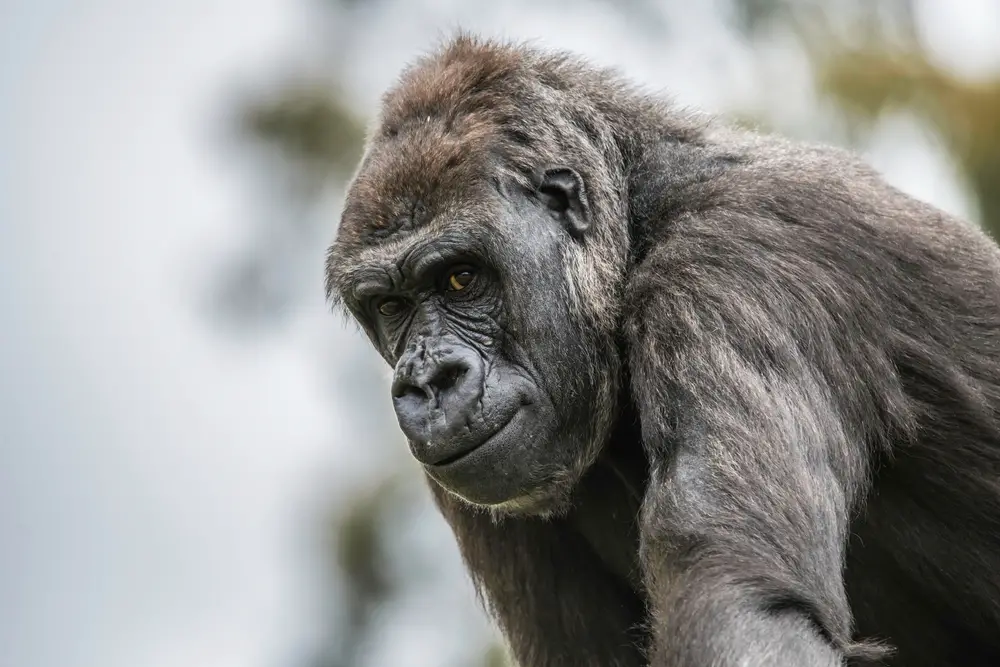
In gorilla troops, the leader is always engaged, taking responsibility for the group’s well-being. If someone in your circle is constantly on the periphery, playing the silent observer without ever contributing, take note. This aloofness can be a strategic move, keeping them insulated from accountability while soaking up information they might use later. Dr. Jane Goodall’s research on chimpanzee behavior highlights that those who detach often harbor ulterior motives, using knowledge as a weapon.
When you confront their distance, they might shrug it off with a charming smile or a self-deprecating joke. It’s a smokescreen, obscuring the fact that they prefer to know more about you than you’d ever know about them. Just like a gorilla who only shows up to eat but never to groom or play, their priorities center on taking, not giving. You might feel flattered by their curiosity, but it’s rarely genuine; their silence speaks volumes.
2. The Emotional Hijacker

Gorillas exhibit a remarkable ability to read emotions and respond appropriately, maintaining harmony within their groups. If someone consistently dominates conversations with their drama, eclipsing others’ feelings, you’re likely dealing with an emotional hijacker. They navigate social settings like a personal stage, ensuring their narrative takes center spotlight, often at the expense of those around them. This tactic can leave you feeling sidelined, like an extra in your own life.
As you watch them spin tales of woe and triumph, everything somehow circles back to them. When they finally pause for breath, your stories have lost their moment. This is not just a need for attention; it’s a form of control, a way to anchor the social dynamic around their ego. The gorilla troop thrives on balance and shared experiences, a lesson we could all take to heart when dealing with these emotional monopolizers.
3. The Sabotaging Subordinate
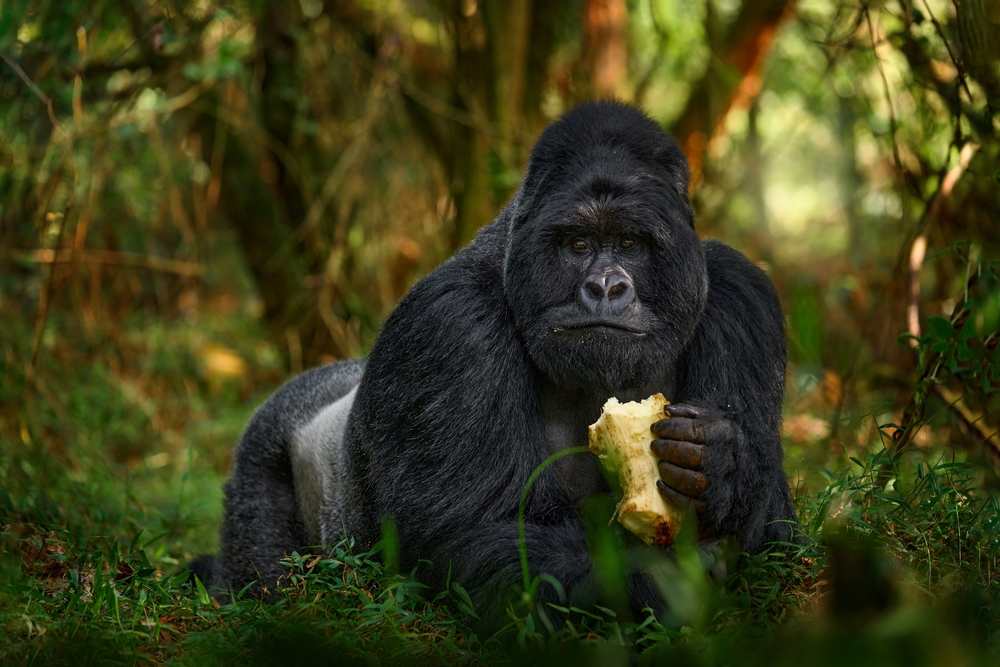
In gorilla society, younger members respect their elders, cultivating a structure of mutual support. Keep an eye out for individuals who, instead of supporting their friends, subtly undermine them. They might offer backhanded compliments or “accidentally” forget to pass on important information, always with a disarming smile that suggests innocence. A study published in The Journal of Social Psychology found that these saboteurs often cloak their actions in humor or false concern, making it difficult to call them out.
Their sabotage is often a strategic play to ensure they never feel overshadowed, maintaining their self-image by keeping others below them. If you challenge them, they might accuse you of being overly sensitive or misinterpreting their intent. This gaslighting tactic is textbook toxic behavior, leaving you questioning your judgment. Unlike the respectful interplay seen in gorilla groups, their interactions often leave damage in their wake.
4. The Manipulative Charmer

Charisma in gorillas manifests as genuine connection and care, traits that benefit the entire group. However, in humans, charm can be a double-edged sword, wielded by those who use it to manipulate. The manipulative charmer is skilled at making you feel special, convincing you that you’re the only one who understands them. But peel back the layers, and you’ll find a carefully curated persona designed to keep you entranced and compliant.
They excel at reading the room, knowing exactly what to say to win favor and loyalty. But their charm is a performance, one that requires energy to maintain, and you’ll often catch glimpses of the cracks when they’re not in the spotlight. Their relationships are transactional, and they’ll extract what they need from you before moving on to the next target. This contrasts starkly with the authentic bonds formed within gorilla groups, where interactions are based on mutual respect and genuine care.
5. The Opportunistic Climber
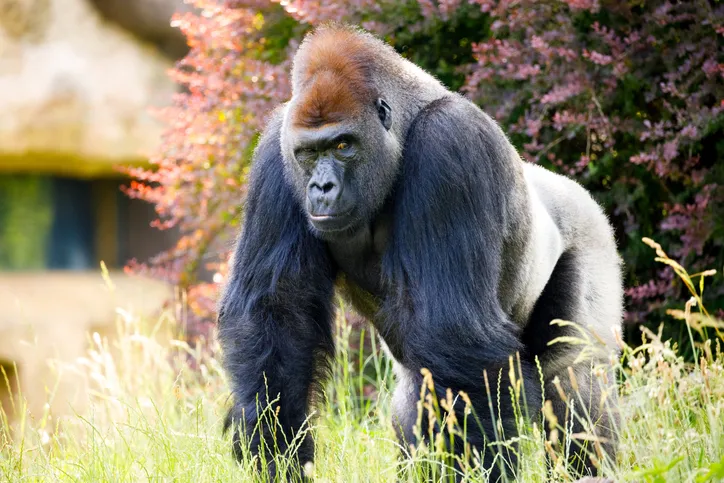
In gorilla troops, hierarchy is established through strength, wisdom, and the ability to protect and care for the group. Meanwhile, humans have opportunistic climbers who latch onto others to ascend socially or professionally. They network not for genuine connection but for strategic gain, collecting contacts like trophies. Dr. Natalia D. Bilenko, a researcher on social dynamics, notes that these individuals often mimic the behaviors and values of those they seek to replace or surpass.
Their loyalty is fleeting, vanishing as soon as they’ve extracted what they need. They might shower you with praise and attention when it suits their agenda, only to ghost you once a more lucrative opportunity arises. The opportunistic climber’s relationships are transactional, leaving others feeling used and discarded. Unlike gorillas, who rise through the ranks by contributing to the group’s welfare, these climbers prioritize personal gain over collective growth.
6. The Chronic Critic

Gorillas use gentle grooming and play to build bonds and diffuse tension within their groups. Humans, on the other hand, sometimes foster connections through criticism, but not all criticism is constructive. The chronic critic finds satisfaction in pointing out flaws and mistakes, often under the guise of “helping” or “improving” you. Their critiques are rarely about you; they’re about reinforcing their sense of superiority.
They’ll often frame their comments as honest feedback or tough love, making it difficult for you to reject their words without feeling defensive. But strip away the mask of concern, and you find insecurity lurking beneath, driving their need to diminish others. Their relentless focus on negativity can drain the joy out of any interaction, casting a shadow over your achievements and self-esteem. Unlike the supportive environment cultivated by gorillas, these critics thrive on imbalance and discontent.
7. The Boundary Bulldozer
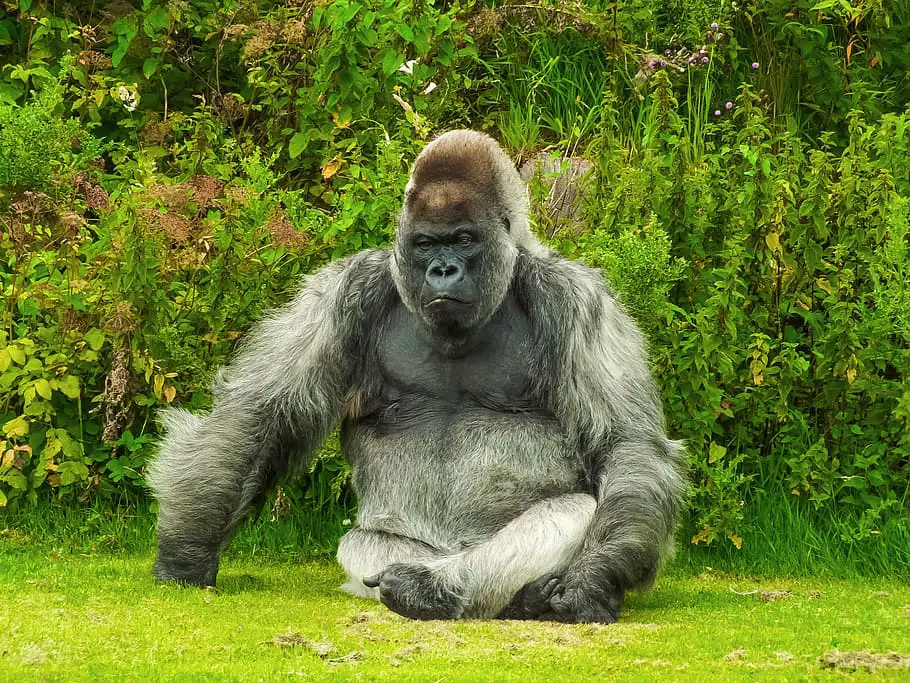
Gorillas instinctively understand personal space, respecting each other’s boundaries to maintain group harmony. Humans, however, sometimes bulldoze these boundaries, ignoring the quiet cues that say, “That’s enough.” Boundary bulldozers are those who consistently overstep, whether it’s physical space, emotional limits, or personal privacy. A study from the University of California, Berkeley, highlights how people who disregard boundaries often do so to assert control or dominance over others.
When you assert your limits, they’re likely to dismiss your concerns, trivializing your needs to maintain the upper hand. Their disregard for your comfort is a red flag, signaling a lack of respect for you as an individual. This behavior isn’t just intrusive; it’s a manipulation tactic, designed to keep you off balance and unsure of your right to autonomy. In contrast, gorillas maintain a delicate balance of personal space and shared connection, a harmony we might aspire to emulate.
8. The Drama Addict

In gorilla groups, disruptions are rare and often quickly resolved through cooperation and understanding. But among humans, the drama dynamo seems to thrive amidst chaos, perpetually spinning webs of conflict and tension. They’re the ones with an uncanny ability to inflame a situation, then sit back and watch the fallout with a detached sense of satisfaction. More than just seeking attention, they’re often seeking control, using drama to dictate the emotional landscape of their environment.
Their unpredictability keeps everyone else on edge, distracted by the latest upheaval rather than focusing on their goals. This constant state of agitation can be exhausting, leaving you wary of engaging with them for fear of being swept up in their turbulence. In contrast to the harmonious problem-solving of gorilla troops, drama dynamos thrive in discord, maintaining their influence through manufactured crises. You’ll find your energy drained and your peace disrupted, a clear sign of their toxic influence.
9. The Reluctant Obligor
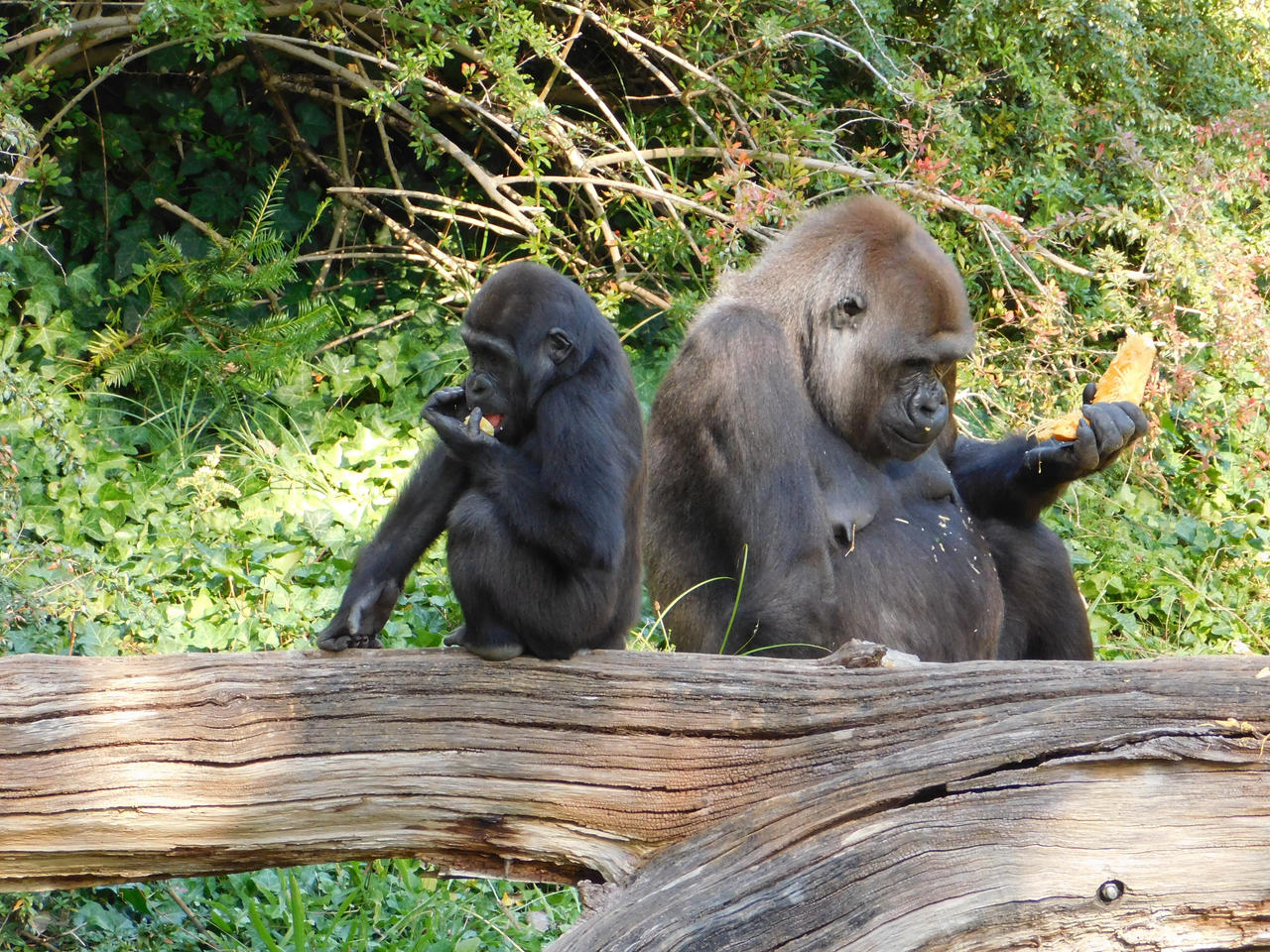
Gorilla communities thrive on shared responsibility, where each member contributes to the group’s welfare. Humans, however, sometimes fall prey to the reluctant obligor, who grudgingly agrees to help but never happily. They might commit to tasks with a heavy sigh or a complaint, ensuring everyone knows just how much they’re sacrificing. This passive-aggressive attitude can create a toxic atmosphere, sowing seeds of resentment and guilt.
Their reluctance isn’t just about the task at hand; it’s often a way of asserting their perceived burdensomeness. Instead of fostering cooperation, they reinforce divisions, making others feel indebted or guilty for asking anything of them. Unlike the collaborative spirit found in gorilla groups, these individuals foster a culture of obligation rather than mutual support. You’ll find yourself hesitating to seek their help, wary of the emotional toll it might exact.
10. The Competitive Comparer

Gorilla societies rely on cooperation and mutual support, but some humans can’t resist turning life into a competition. The competitive comparer measures their worth against others, constantly evaluating their standing in the social hierarchy. Whether it’s achievements, possessions, or relationships, they’re always keeping score, ensuring they’re one step ahead. This need for comparison can taint interactions, reducing them to contests rather than connections.
Their competitiveness isn’t about improvement or growth; it’s about validation and one-upmanship. Even when you share your successes, they find a way to overshadow them with their own, leaving you questioning your accomplishments. This dynamic can breed insecurity and mistrust, eroding the foundation of healthy relationships. Unlike gorillas, who lift each other up to strengthen the group, competitive comparers focus on elevating themselves at any cost.
11. The Perpetual Victim
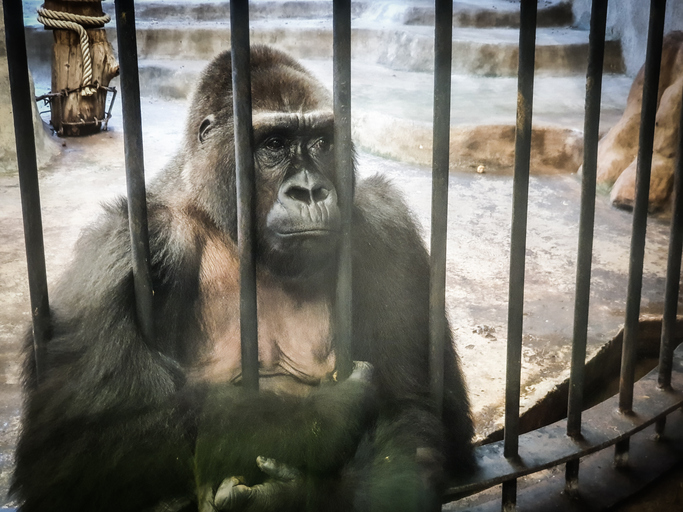
Gorillas face challenges with resilience, often working together to overcome obstacles. In contrast, the perpetual victim thrives on adversity, framing every setback as a personal affront. They recount their woes with a weary sigh, casting themselves as martyrs in a world that’s out to get them. Their narrative can be compelling, drawing you into a cycle of sympathy and support that never seems to resolve.
Their victimhood becomes a shield against accountability, allowing them to deflect responsibility for their actions. As you invest more emotional energy into their struggles, your patience wears thin, yet they often remain oblivious to your fatigue. This dynamic not only drains your resources but also reinforces their role as the aggrieved party. Unlike the cooperative resilience of gorilla groups, perpetual victims remain stuck in their stories, never moving toward resolution or growth.
12. The Envious Underminer

In gorilla families, success is shared and celebrated, fostering a sense of unity and pride. However, in human circles, you might encounter the envious underminer, who masks their jealousy with false support. They’ll congratulate you with one hand while subtly pulling you down with the other, their envy seeping through their smiles. This duality can be confusing, leaving you questioning the sincerity of their intentions.
Their envy isn’t just a fleeting emotion; it’s a lens through which they view the world. Instead of celebrating your achievements, they see them as reminders of their perceived inadequacies. This perspective fuels their undermining behavior, as they attempt to level the playing field by sowing doubt or diminishing your accomplishments. Unlike gorillas, who take pride in the success of their kin, envious underminers erode trust, turning triumphs into sources of tension.
13. The Habitual Liar
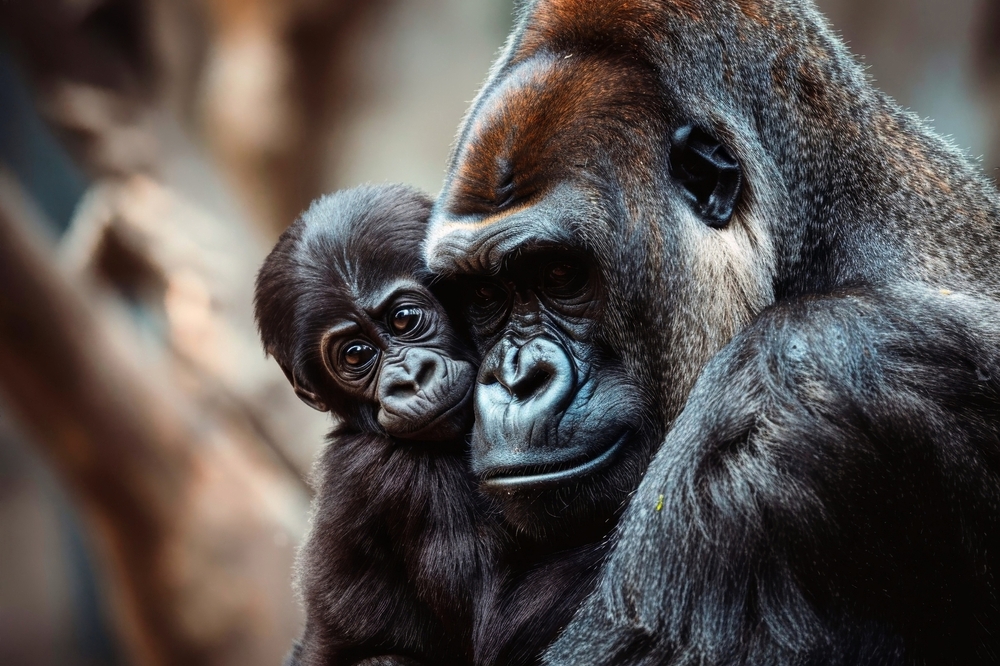
Gorilla communication is based on honesty and clarity, vital for maintaining trust and cohesion within the group. Human relationships, however, sometimes fall prey to the habitual liar, who weaves tales with the skill of a practiced storyteller. They might embellish the truth, omitting inconvenient details or fabricating entire narratives, all in the name of self-preservation or manipulation. This deceit creates a foundation of instability, eroding trust and fostering suspicion.
Their lies aren’t just about self-aggrandizement; they’re often strategic, designed to manipulate perceptions and maintain control. As their web of falsehoods grows, it becomes increasingly difficult to discern reality from fiction, leaving you second-guessing your intuition. This deceitful dynamic contrasts sharply with the transparent communication found in gorilla communities, where honesty and trust are paramount. The habitual liar thrives on confusion and doubt, leaving a trail of fractured relationships in their wake.
